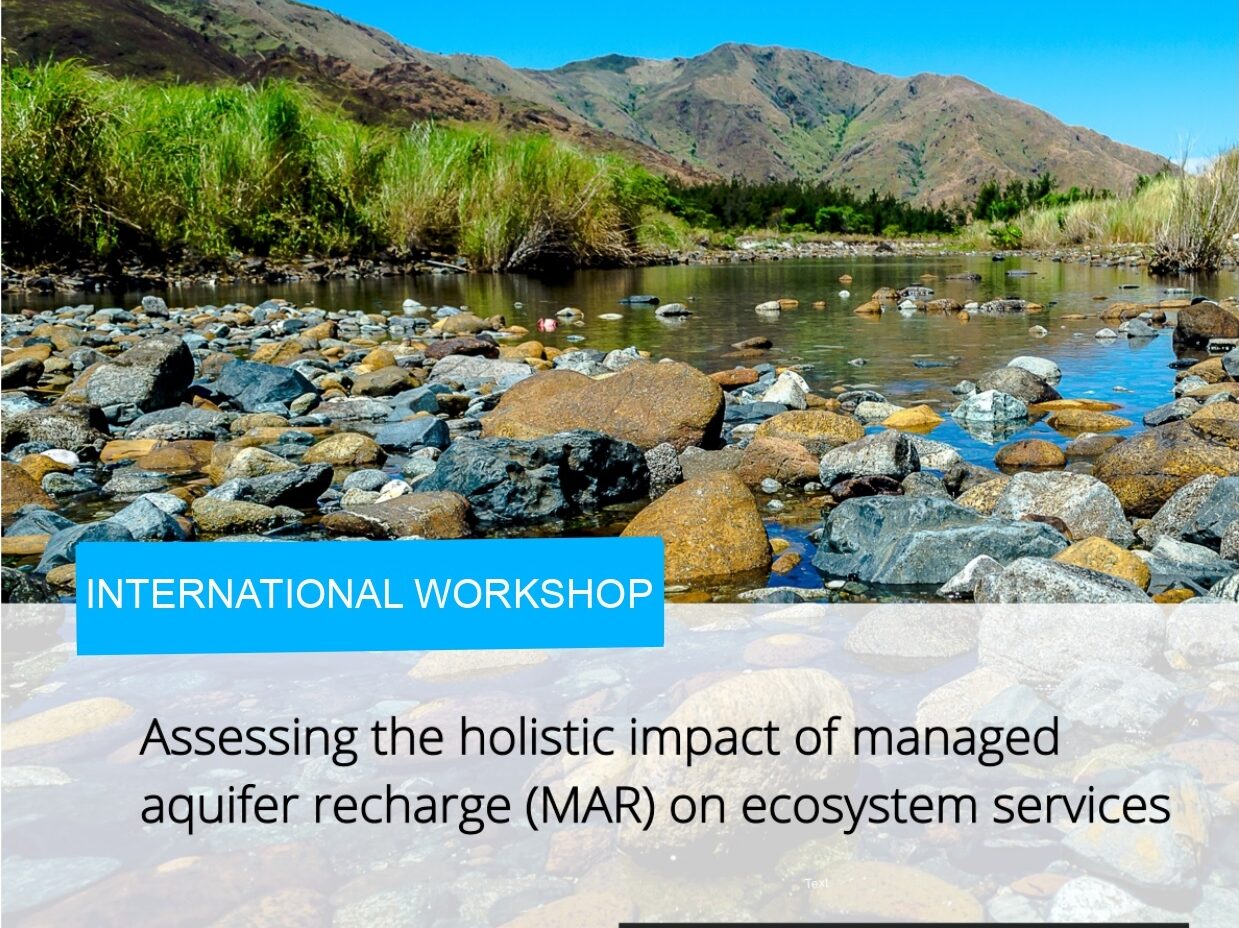Water scarcity problems are rapidly increasing in many areas of the world and the unsustainable use
of water resources exacerbates the pressure on hydrological systems. Synergically, the negative
effect of climate change on the ecosystems makes the management of water resources more
challenging due to the alteration of precipitation patterns or the increase in snow and ice melting, to
name few examples.
Established engineered solutions like water reservoirs and flood barriers help in buffering
unpredictable events and secure water availability for human well-being. However, these systems
have been recognised as potential ecosystem functioning disruptors and not always sustainable
solutions. Innovative and sustainable solutions capable of avoiding such shortcomings are required to
tackle complex water scarcity scenarios in times of climate change.
Non-conventional water solutions such as the underground storage of water could offer both
innovative strategies for increased water availability and maintenance of multiple ecosystem services.
The underground storage technique named Managed Aquifer Recharge (MAR) is defined as a
“purposeful recharge of an aquifer for later recovery or environmental benefits”. Despite the known
ability of MAR for viable and sustainable water supply in urban and peri-urban areas, its
implementation is limited in many regions. MAR implementation has accelerated at a fast rate in the
last few decades, but has not kept pace with the increasing rate of groundwater abstraction.
Worldwide, MAR volume constitutes only 1% of global groundwater use, and in Latin American and
Caribbean (LAC) countries, the development is extremely low because its great potential is still
unknown to most. Mostly, MAR is recognised as tool to improve the availability of water in terms of
quantity either for agricultural productivity (SDG 2) or drinking water provisioning (SDG 6). But, often
neglected, MAR can also contribute to the achievement of long-term groundwater sustainability by
addressing multiple ecosystem services at the same time, such as supporting riparian habitats,
mitigating floods, reducing runoff and erosion, controlling land subsidence, improving coastal water
quality and increasing the minimum flow in rivers, among others.
With this perspective, MAR should be considered as increasingly relevant nature-based solution for
future integrated water management planning in LAC with the goal of maintaining, enhancing and
replenishing stressed groundwater systems and, at the same time, ensuring the maintenance of
ecological processes (SDG 11) to mitigate climate change (SDG 13) and preserve biodiversity (SDG
14 and 15). This International Workshop organised by the United Nations University Institute for
Integrated Management of Material Fluxes and of Resources (UNU-FLORES) and Technische
Universität Dresden (TUD) in cooperation with the Latin American MAR Community of Practice
(LatinMAR) aims at gaining insights on the benefits of Managed Aquifer Recharge beyond the
common understanding of MAR as water volume supply systems and assessing the Ecosystem
Services directly or indirectly related to its implementation.
Assessing the holistic impact of managed acquifer recharge (MAR) on ecosystem services

Comments RSS Feed
Related Posts

Food System Resilience through
19 Ott , 2023 - Uncategorized


